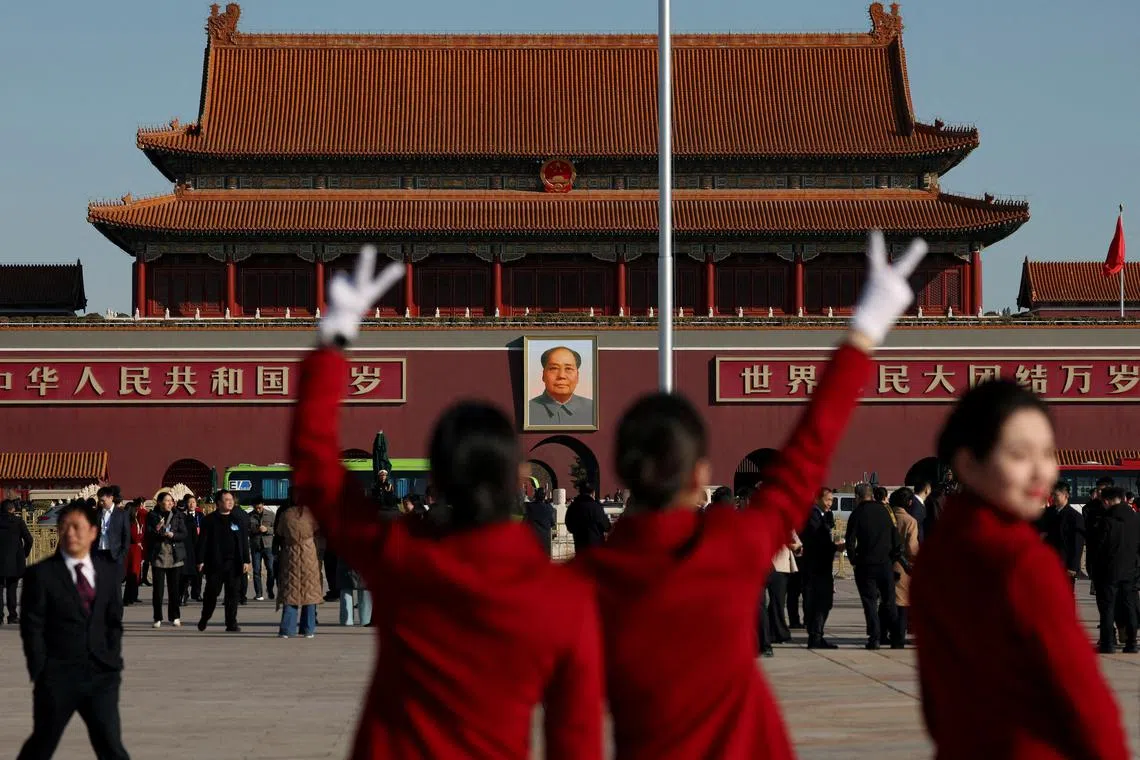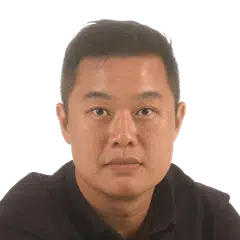China to double down on economy amid heightening geopolitical tensions
Sign up now: Get insights on Asia's fast-moving developments

China’s economy grew 4.7 per cent in the three months to June, bringing growth in the first half of the year to 5 per cent.
PHOTO: REUTERS
Follow topic:
BEIJING – China’s top leaders have pledged to fortify the country’s slowing economy by boosting domestic demand and developing high-tech industries amid what they regard as an increasingly hostile environment.
They have also highlighted the need to reduce risks in key areas such as the country’s stubborn real estate slump, crippling local government debt and shaky financial institutions, according to a major policy bulletin following a high-level meeting.
A more detailed report on the priorities listed in the bulletin is expected to be released several days after the closing on July 18 of the Third Plenum, which, as the name suggests, is the third plenary session of the current Central Committee of the Communist Party of China (CPC).
The Third Plenum usually focuses on economic issues.
Chinese President Xi Jinping, general secretary of the CPC, had presided over the four-day closed-door meeting in Beijing involving some 360 party officials.
“To steadily advance reform, we will focus on building a high-standard socialist market economy,” the communique stated, adding that the “reform tasks” listed in it shall be completed by the time the People’s Republic of China marks its 80th anniversary in 2029.
The communique also underlined China’s intentions to step up efforts to “lead global governance, and proactively shape a favourable external environment”.
Taken in their entirety, the priorities spelt out in the document aim to address the steep challenges that China has been facing in its drive to develop economically
The country’s exports, particularly electric vehicles (EV), have been under fierce scrutiny by overseas governments worried about China dumping its products abroad to reduce its overcapacity and undercutting their manufacturers.
China overtook Japan in 2023 to become the world’s largest car exporter, thanks to the popularity of its EVs overseas.
But countries like the United States and Canada, and the European Union are taking issue with the subsidies that Beijing provides to develop its green industries, claiming that the grants have distorted fair competition.
Domestically, the Chinese government’s regulatory clampdowns on its formerly high-flying sectors, particularly real estate and technology, have weakened its economic growth, hitting consumption particularly hard.
The slump in the property sector, which reportedly holds up to 70 per cent of household wealth, has left the Chinese feeling poorer and more unwilling to spend lavishly as they were known to do before the downturn.
China’s economy grew 4.7 per cent in the three months to June, missing economists’ expectations, but it brought growth in the first half of the year to 5 per cent – the target for 2024 announced by Chinese Premier Li Qiang at the annual parliamentary meetings in March.
China’s recovery since the lifting of the Covid-19 pandemic restrictions in December 2022 has been uneven, with exports forming the bulk of the expansion as retail and the property sector continue to be a drag on growth.
In June, retail grew at the slowest year-on-year pace of 2 per cent since China’s reopening, while prices of new homes and property investments continued their decline. This was despite Beijing taking its boldest step in May to allow the government to be the buyer of last resort of unsold homes.
The property downturn has also had a knock-on effect on local government coffers, which had previously relied on land sales for their finances, and caused a number of public projects to be halted due to funds drying up.
The Third Plenum was closely watched as major reforms were announced at previous such meetings.
In December 1978, the Third Plenum, under then leader Deng Xiaoping, heralded the country’s reform and opening-up policy, paving the way for China to develop into the world’s second-largest economy.
The previous such plenum in February 2018 had initiated the removal of a constitutional clause that limited China’s president to two terms. It also encouraged party members to “unite closely” around the ruling central committee, with President Xi at the “core”. Mr Xi is now serving a third term as China’s president.
Analysts told The Straits Times that they do not expect strong economic stimulus to follow the latest communique, given that Beijing wants to maintain room for policy manoeuvring after the US presidential election in November.
Mr Bo Zhengyuan, founding partner at Plenum research consultancy in Shanghai, expects any “major policy changes to be announced only after November” when the US unveils a new president.
Assistant Professor Dylan Loh of Nanyang Technological University said Mr Xi has used the plenum to assure the Chinese that the ruling elite continues to strive for a balance between national security and development.
Worries have emerged among the Chinese public that the government has been focusing too much on developing the country’s high-tech industries to safeguard the economy against hostile foreign powers, particularly the US, and not enough on bread-and-butter issues, such as slowing salary growth.
The communique pointed out the need to balance development with security, said Prof Loh, an expert on Chinese foreign policy.
“Overall, the communique had aimed to strike a nuanced and balanced tone without seeming downbeat about China’s economic prospects as well,” he added.
The communique also formally announced the removal of China’s former foreign minister Qin Gang from the ruling party’s Central Committee, its largest top decision-making body, and the expulsion of former defence minister Li Shangfu from the party.
Both had disappeared from public view months after being appointed to their jobs, with Li later charged with corruption. It remains unclear why Mr Qin was abruptly removed from his job.


